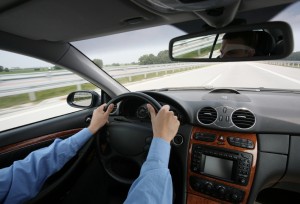 I had a fun time getting to use some Love and Logic parenting skills with my five year-old son, Ezra, the other morning. Ezra is part of a carpool that leaves at 7AM each morning. In order to give him and his sister, Eliza, enough time to get ready, clean their rooms, make their beds, and eat breakfast, I wake them up about 45 minutes before they need to leave and I stay with them to help them through the morning routine.
I had a fun time getting to use some Love and Logic parenting skills with my five year-old son, Ezra, the other morning. Ezra is part of a carpool that leaves at 7AM each morning. In order to give him and his sister, Eliza, enough time to get ready, clean their rooms, make their beds, and eat breakfast, I wake them up about 45 minutes before they need to leave and I stay with them to help them through the morning routine.
Recently, my wife and I have noticed that we have been feeling more urgency for our kids to be ready on time than they have felt. Yes, sadly we have fallen into the habit of saying things like “Hurry up! We’re going to be late.” And, “If you had put your shoes where they belonged we wouldn’t have to search for them now when it is time to go.” We’ve been late driving carpool in the morning more than once because Ezra and Eliza were not ready when it was time to go.
After repeating this frustrating pattern several times, we decided to use a Love and Logic technique that helps kids get ready for the real world – it’s called “be on time or find another way there.” Okay, maybe that’s not the exact name of the technique, but it’s descriptive enough.
After creating a plan and getting support from others we waited for the right opportunity to put that plan into action. That opportunity came quickly. After waking up my kids with love and tenderness and helping guide them through the morning routine, Ezra and Eliza became sidetracked and started playing with the family dog. In a loving and nonthreatening tone, I let my kids know that I would be leaving at 7AM and that they needed to be fully dressed before they could eat breakfast. However, Ezra and Eliza continued to play with the dog.
The 7 o’clock hour arrived and I headed for the car. A panic came across Ezra and Eliza as they frantically looked for their shoes. Eliza managed to grab her shoes and jump into the car just before it left the garage. However, poor little Ezra. He had not found his shoes before the car left for the carpool and he got left behind.
Ezra ran to his mother and started to cry. Ezra’s mother showed lots of empathy and gave him lots of love and then they found his shoes together. Afterward, Ezra’s mother let Ezra know that one of the mothers in the neighborhood would be volunteering at school that day and that she could take him to school. The only catch was that she charged $3 to drive kids to school that missed the carpool. Ezra paid the neighbor the $3 (about a week and a half of allowance) and made it to school that day.
If this were the end of the story, it would be pretty good lesson on creating a logical consequence to go with missing the carpool; but the story continues. The next day, when 7AM arrived and it was time to head out to the car, no one could find Ezra anywhere. But when I went out to the garage to start the car, I found that Ezra was already buckled in his booster seat waiting to leave for school. The same thing happened the following day also. Since that day Ezra and Eliza have been a lot better at being in the car when it is time to leave for carpool.
The principle is this: when parents set firm limits with their kids without getting angry, threatening, or shaming their kids, and then provide empathy and sadness for their kids when they make mistakes, kids are better able to learn from their mistakes. In this way, the child focuses on the natural consequence rather than on the parent’s anger or frustration.
Thanks for reading
 Shiloh Lundahl, LCSW, is a child and family therapist in Gilbert and Mesa, Arizona. He is the founder of Parent Arizona and Counseling Services and is part of the Arizona Family Institute. He provides parenting classes using the Love and Logic curriculum, classes for parents of children with ADHD, step-parenting classes, and advanced trainings for foster and adoptive parents. He also provides in-home therapy in Gilbert, Mesa, Queen Creek, San Tan Valley, Chandler, and Tempe, Arizona.
Shiloh Lundahl, LCSW, is a child and family therapist in Gilbert and Mesa, Arizona. He is the founder of Parent Arizona and Counseling Services and is part of the Arizona Family Institute. He provides parenting classes using the Love and Logic curriculum, classes for parents of children with ADHD, step-parenting classes, and advanced trainings for foster and adoptive parents. He also provides in-home therapy in Gilbert, Mesa, Queen Creek, San Tan Valley, Chandler, and Tempe, Arizona.
